The 5 Best Pre and Post-Workout Meals to Boost Weight Loss
When I decided to implement this serious combination of exercise and nutrition into my routine to lose weight and achieve my goals, one of my biggest doubts was definitely: What are the pre- and post-workout meals? What would be the best option? And guess what, whenever we start looking for something, millions and millions of opinions appear out there – Eat carbohydrates, avoid them, focus on proteins, eat right after, wait a long time… I confess that at first I felt quite lost.
It was then that I started to research more in depth about specific nutrition for before and after training and discovered that there are some meals that are key and that can really boost fat burning and muscle recovery. Follow me in this guide!
Weight loss is a significant goal for millions globally, and our dietary choices are paramount in achieving it. Scientific research and the field of sports nutrition increasingly demonstrate that beyond mere calorie counting, the nutritional quality of our food and the strategic timing of our meals can directly impact both weight loss outcomes and our physical performance during training sessions, especially concerning Pre and Post-Workout Meals.
In this article, we will delve into the most effective Pre and Post-Workout Meals, elucidating how they can significantly enhance weight loss efforts, and also provide practical advice and insightful reflections to guide you towards achieving your fitness goals in a healthy and sustainable manner. Understanding the importance of Pre and Post-Workout Meals is key to optimizing your results.
You will gain knowledge about the essential nutrients your body requires both before and after exercise, learn how to construct optimized Pre and Post-Workout Meals, and identify dietary practices that should be avoided to maximize your progress. As we continue, you will also encounter inspiring real-world examples, relevant data, and credible references that will further enrich the value of this information regarding Pre and Post-Workout Meals and their role in weight loss.
Are you ready to join us on this transformative journey to unlock the power of strategic nutrition, particularly concerning Pre and Post-Workout Meals, to fuel your weight loss and fitness success?
The Impact of Nutrition on Weight Loss
Before we dive into the best Pre and Post-Workout Meals options, it’s crucial to understand the profound impact of nutrition on weight loss. Numerous studies indicate that strategically consuming the right food both before and after your workout not only enhances your physical performance but also significantly speeds up the body’s natural fat-burning process, especially when considering the benefits of well-planned Pre and Post-Workout Meals. When you prioritize smart eating habits, particularly around your training sessions with carefully chosen Pre and Post-Workout Meals, your chances of achieving your weight loss goals increase significantly.
For example, a study published in the Journal of Sports Sciences revealed that athletes who consumed balanced meals before and after training showed superior performance and greater muscle recovery. This principle applies to all individuals, regardless of their level of physical activity.
See more articles about exercise:
Pre and Post-Workout Meals: What to Consider Before Your Workout
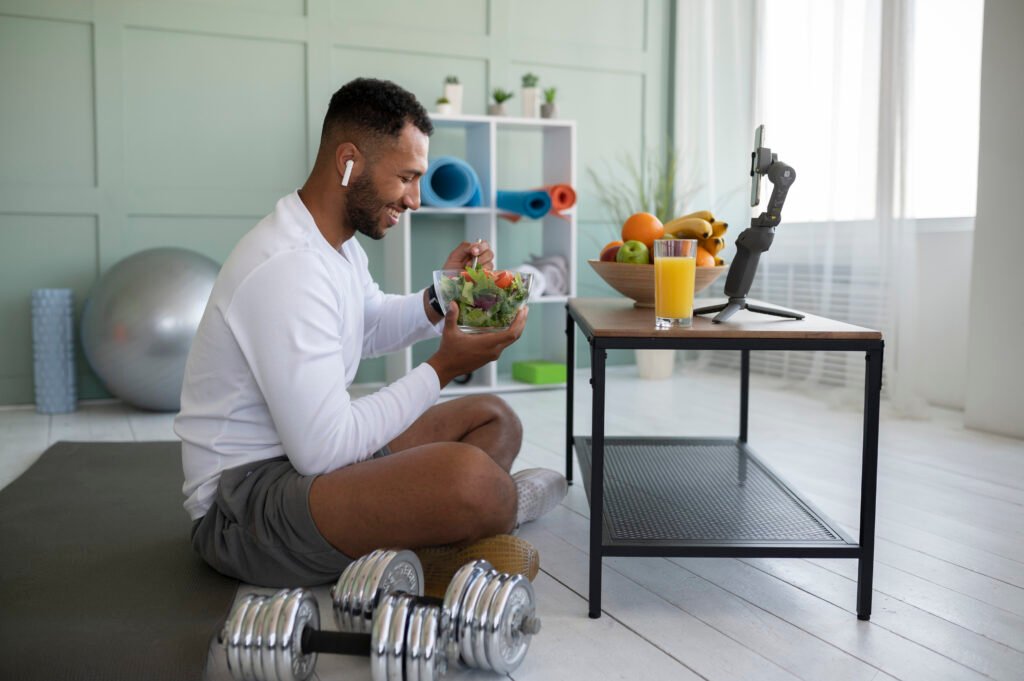
Strategic Pre and Post-Workout Meals are absolutely essential, with the pre-workout component playing a vital role in providing the necessary energy and optimally preparing the body for the demands of physical activity. A well-balanced pre-workout meal should thoughtfully include a combination of carbohydrates, proteins, and healthy fats, while also being light enough to prevent any discomfort during the subsequent workout.
Carbohydrates serve as the body’s primary source of readily available energy and should ideally constitute the majority of the pre-workout meal, with excellent food choices including options such as brown rice, nutritious sweet potatoes, or energy-sustaining oatmeal.
Proteins are crucial for helping to preserve valuable muscle mass during exercise, and healthy fats contribute to promoting feelings of satiety and supporting good hormonal function. A practical example of an effective pre-workout meal could be a banana paired with natural peanut butter or a refreshing fruit smoothie blended with high-quality protein powder, both excellent choices when considering your Pre and Post-Workout Meals nutrition.
Checklist for an Effective Pre-Workout Meal: Prepare Your Body for Succes
To ensure you have optimized energy and your body is ready for physical activity, follow this detailed checklist for your pre-workout meal:
- Include Complex Carbohydrates as Your Energy Base: Carbohydrates are the primary fuel source for your muscles. Opt for complex options such as oatmeal, sweet potatoes, brown rice, quinoa, or a slice of whole-grain bread. They release energy gradually and consistently, preventing blood sugar spikes and crashes.
- Add a Light, Quality Protein Source: Protein is crucial for protecting your muscles during exercise and aiding in recovery. Choose easily digestible sources like egg whites, Greek yogurt, shredded chicken breast, or a small portion of whey protein. Protein helps maintain satiety and build lean mass.
- Consider a Small Portion of Healthy Fat: While fat is digested more slowly, a small amount can contribute to satiety and hormonal health. Options like a teaspoon of peanut butter, a few slices of avocado, or a drizzle of olive oil are ideal. The key is moderation to avoid gastric discomfort.
- Keep Your Meal Light and Easily Digestible: The goal is to energize, not to overload. Avoid heavy, overly fibrous, or excessively fatty meals right before your workout, as they can cause discomfort, bloating, or nausea. A light meal ensures that energy is available for your muscles, not for heavy digestion.
- Consume 30 to 60 Minutes Before Your Workout: Timing is essential. Eating within this window allows nutrients to be partially digested and available when your body needs them most. If your workout is very intense, aim closer to the 60-minute mark. For lighter workouts, 30 minutes may suffice.
Following this checklist will ensure you optimize your performance, maximize fat burning, and feel more energetic and focused throughout your entire workout!
Best Pre-Workout Foods
Now that we have the checklist, let’s look at the food options that can be incorporated into your pre-workout meal. Here is a table with some suggestions:
| Food | Type | Benefits |
|---|---|---|
| Banana | Carbohydrate | Fast source of energy |
| Eggs | Protein | Helps with muscle recovery |
| Sweet potato | Carbohydrate | Slow release of energy |
| Spinach | Vegetable | Rich in vitamins and minerals |
| Quinoa | Carbohydrate and Protein | High protein and fiber content |
Post-Workout Meals: The Importance of Recovery
After an intense workout, your body needs nutrients to recover. This is the ideal time to restore energy levels and repair damaged muscles. A post-workout meal should contain a combination of protein and carbohydrates to optimize recovery and prepare your body for the next workout.
Studies have shown that eating a high-protein meal after exercise can increase muscle synthesis and improve performance in subsequent workouts. Examples of post-workout meals include a protein shake with fruit or a plate of grilled chicken and brown rice.
Post-Workout Meal Checklist
- Consume a high-quality protein source
- Include healthy carbohydrates
- Stay hydrated
- Eat your meal within 30 minutes of your workout
- Avoid processed foods
Best Post-Workout Food Options
Just like the pre-workout meal, we can also make a table with suggestions for post-workout foods:
| Food | Type | Benefits |
|---|---|---|
| Chicken breast | Protein | Helps with muscle repair |
| Wholemeal bread | Carbohydrate | Restores energy quickly |
| Greek yogurt | Protein | Provides probiotics and minerals |
| Red fruits | Carbohydrate | Rich in antioxidants |
| Baked sweet potato | Carbohydrate | Excellent source of energy |
Case Studies: Weight Loss Success Stories
To illustrate the effectiveness of pre- and post-workout meals, let’s look at a case study of an amateur athlete who implemented these strategies into her routine.

Maria, 30, began training for a marathon and was having difficulty losing weight. After consulting a nutritionist, she began focusing on meals prepared before and after her workouts.
By introducing complex carbohydrates and protein into her meals, Maria noticed a significant improvement in her energy during workouts. In addition, her recovery improved, allowing her to increase the intensity and frequency of her workouts.
In a three-month period, Maria was able to lose 5 kg and successfully participate in the marathon, validating the importance of proper nutrition in weight loss and athletic performance.
Future Trends in Weight Loss Nutrition
As science advances, new trends emerge in the field of nutrition for weight loss. One such trend is personalized eating, where software and apps are being developed to create eating plans tailored to each person’s individual needs, taking into account factors such as metabolism, health history and food preferences.
Another trend is the use of functional foods that not only nourish but also provide additional health benefits, such as reducing inflammation or regulating metabolism. Products that combine plant-based proteins and amino acid supplements have also gained traction, promoting healthy and sustainable weight loss.
RECOMMENDATIONS: Optimizing Your Pre and Post-Workout Meals for Weight Loss
This article emphasizes the importance of strategically planned pre and post-workout meals for effective weight loss and enhanced athletic performance. To maximize your results, consider these recommendations:
- Prioritize Timing: Consume your pre-workout meal 30-60 minutes before exercising to provide sustained energy. Eat your post-workout meal within 30 minutes after your workout to optimize muscle recovery and replenish energy stores.
- Balance Macronutrients: Both pre- and post-workout meals should include a balanced combination of:
- Complex Carbohydrates: For energy (e.g., brown rice, sweet potatoes, oatmeal, whole-wheat bread, fruits).
- Lean Protein: For muscle repair and growth (e.g., chicken breast, eggs, Greek yogurt, protein powder).
- Healthy Fats: For satiety and hormonal function (e.g., peanut butter, avocado).
- Hydrate Strategically: Drink water before, during, and after your workouts to support performance and recovery.
- Choose Whole, Unprocessed Foods: Focus on whole, unprocessed foods to ensure you’re getting the most nutrients and avoiding unnecessary additives.
- Listen to Your Body: Pay attention to how different foods affect your energy levels and digestion. Adjust your meal choices and timing based on your individual needs and preferences.
- Consult a Professional: For a personalized plan tailored to your specific calorie needs, fitness goals, and health history, consult a registered dietitian or sports nutritionist.
- Experiment and Track: Try different food combinations to find what works best for you. Keep a food journal or use a tracking app to monitor your progress and make adjustments as needed.
By following these recommendations, you can strategically fuel your workouts, optimize your weight loss efforts, and achieve your fitness goals in a healthy and sustainable way. Remember that consistency and a balanced approach are key to long-term success.
Frequently Asked Questions (FAQs)
Below, we answer some of the most common questions about pre- and post-workout meals and their importance for weight loss:
- When is the best time to eat a pre-workout meal? Ideally, you should eat your meal 30 to 60 minutes before your workout.
- Can I train on an empty stomach? While some people can do it, working out on an empty stomach can affect your performance. A light meal can help.
- Why is hydration important? Hydration is crucial for performance and recovery. Drinking water before, during, and after your workout is essential.
- How many calories should I consume in my pre- and post-workout meals? This will vary based on your calorie needs and goals. Consult a nutritionist for a personalized plan.
- Can frozen meals be an option?Yes, as long as they are balanced and nutritious, they can be a good solution for your busy day.
NOTES
Strategic pre and post-workout meals are key for energy, performance, and recovery, supporting weight loss goals. Time your meals (30-60 mins before, within 30 mins after) and prioritize carbohydrates, lean protein, and healthy fats from whole foods. Stay hydrated.
Conclusion
So, by carefully planning your Pre and Post-Workout Meals, you’ll not only experience a noticeable improvement in your exercise performance, but you’ll also be strategically positioned to maximize your weight loss efforts.
Making informed food choices for your Pre and Post-Workout Meals can have a significant and positive impact on your journey towards achieving a healthier and more active physique. It’s important to remember that every individual body is unique, and what constitutes the optimal Pre and Post-Workout Meals for one person may not be the same for another.
We strongly encourage you to experiment thoughtfully with various food combinations for your Pre and Post-Workout Meals and consider consulting with a qualified nutrition professional to further customize your approach based on your specific needs and goals for Pre and Post-Workout Meals.
By effectively integrating these nutritional insights regarding Pre and Post-Workout Meals into your daily routine, you’ll be taking a significant step closer to successfully achieving your weight loss goals and optimizing your overall well-being.

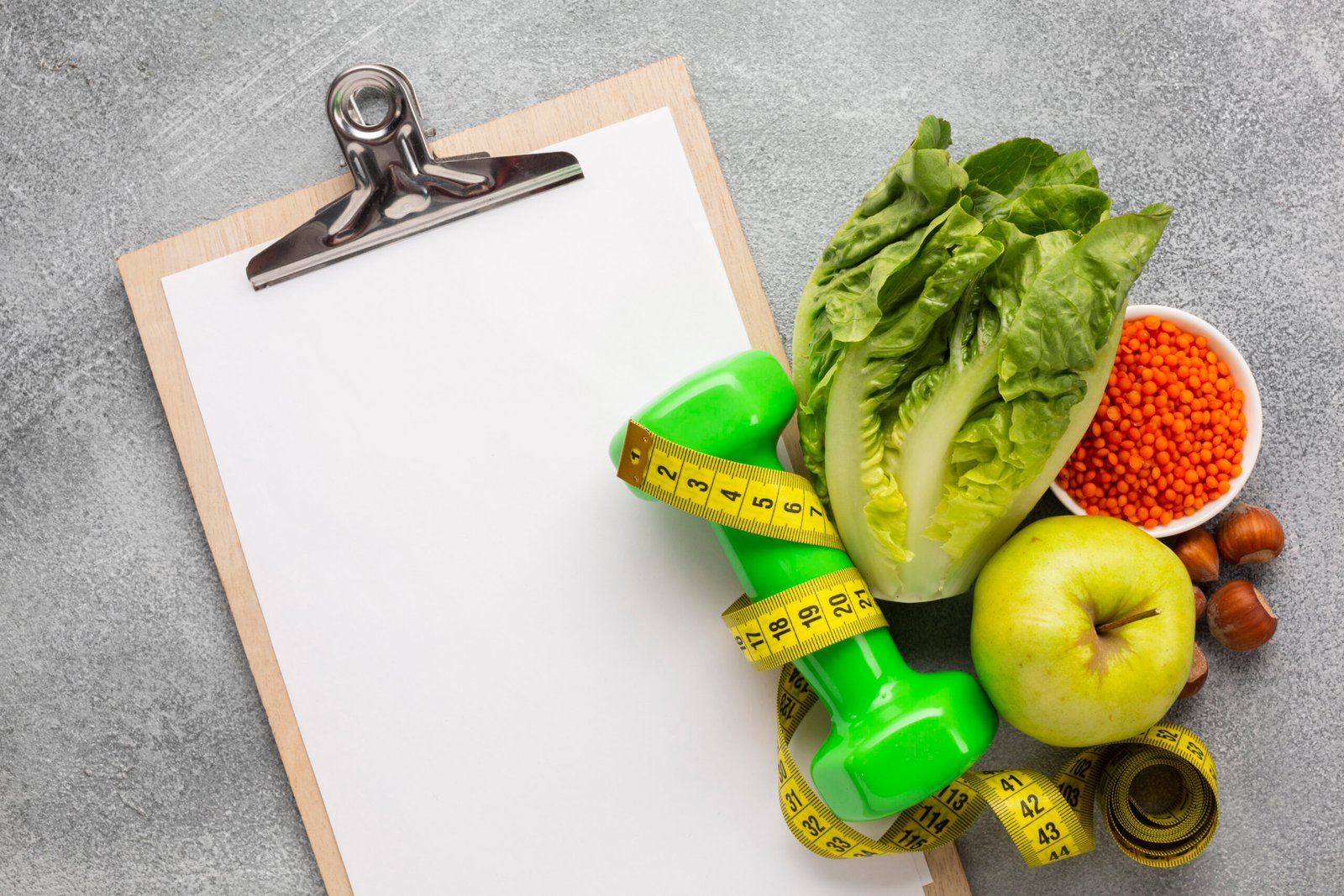

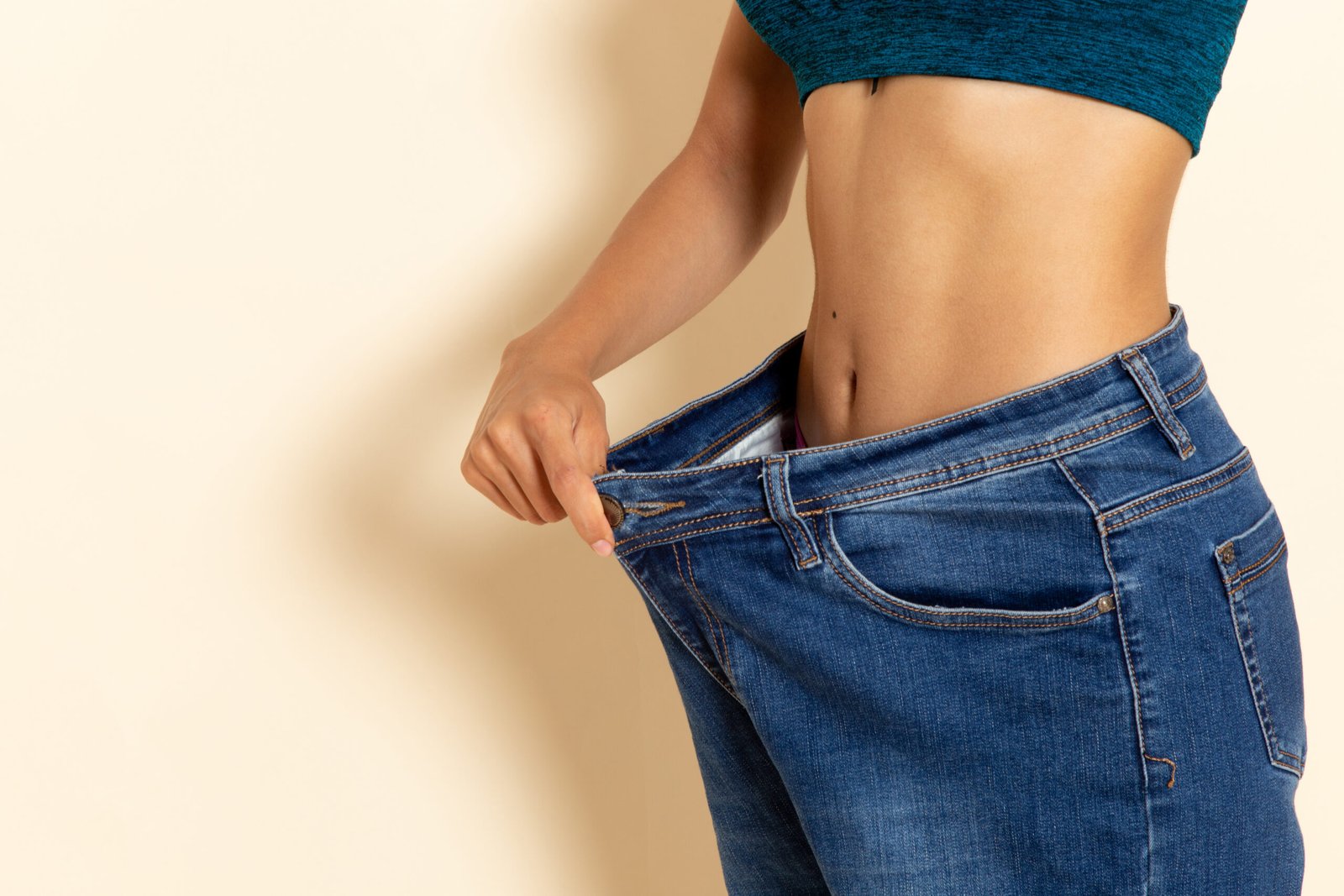
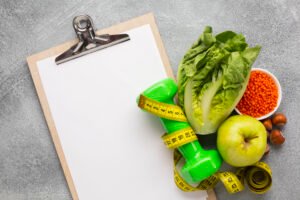

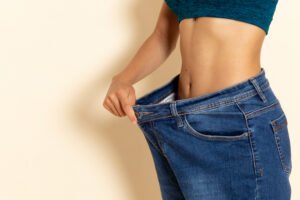
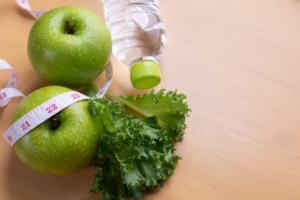





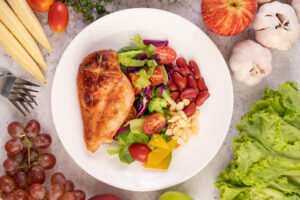
Post Comment